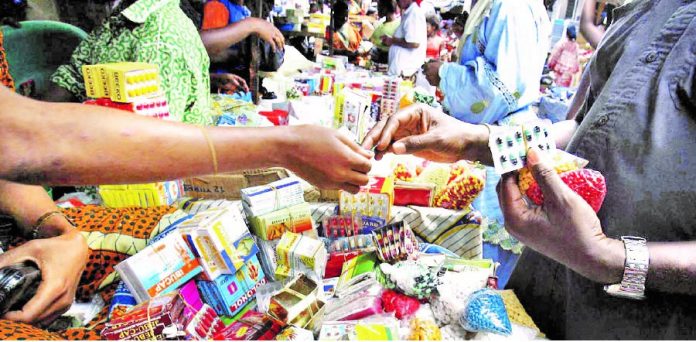FAKE medications have ravaged Nigeria for decades, and the situation does not look like it will abate soon. Every day, numerous Nigerians unknowingly take counterfeit pills and syrups that do not cure but worsen their health. These fake products, unlike counterfeit clothes or gadgets, not only fail to work, but they are deadly. Victims of fake drugs abound all over the country. Fake drugs increase deaths from malaria, stroke, hypertension, asthma, and other illnesses that are already rampant in the country. They are death sentences concealed as cures.
The fake drug issue is not novel in the country, however. It goes back to the mid- 1980s during the era of neo-liberal reforms under the General Ibrahim Babangida administration. The naira suffered devaluation, while imports became expensive, and important medicines that were once available disappeared from drugstores. To fill that gap, counterfeiters seized the opportunity to produce dangerous replicas, flooding the market with them, resulting in an expansion of fake drugs, which has now worsened due to crippling poverty in the country.
Today, over 130 million Nigerians wallow in multi-dimensional poverty, and the ongoing economic crisis, worsened by high inflation and fuel subsidy removal since 2023, has pushed medicine prices further out of reach for ordinary citizens. With most Nigerians unable to purchase genuine medicines, they turn to alternatives, with zero need to check their genuineness.
The exit of foreign pharmaceutical giants like Glaxosmithkline (GSK), Pfizer and Sanofi from the country has further deteriorated the issue, as the availability of quality drugs reduced in the Nigerian market. With soaring inflation and the poor purchasing power of the naira, these impostors now flourish. They exploit hopelessness, offering cheap alternatives that are mostly poisonous. The result is a lucrative underground market where unregulated traders distribute pills without National Agency for Food and Drug Administration and Control (NAFDAC) approvals.
There have been some success stories, like NAFDAC’s raid on notorious drug markets in Lagos, Onitsha, and Aba last February on an unprecedented scale, where over 140-foot containers of fake drugs were seized. In one instance, more than ₦1 trillion worth of counterfeit drugs were destroyed.
However, enforcement alone will not solve the problem. The public must be educated. Most Nigerians don’t know how to identify fake drugs. Few are aware of NAFDAC’s Mobile Authentication Service, which allows users to verify a drug’s authenticity by sending a simple SMS code. Even fewer check for NAFDAC registration numbers or expiry dates. There should be a national campaign on radio, television, social media, and in schools to raise awareness. Pharmacists and community health workers should be enlisted to teach citizens what to look for and report suspicious products.
Beyond public education, the structure of drug enforcement must change. NAFDAC cannot do it alone. Time has come to decentralise the fight against fake drugs. State and local governments should be empowered to set up their own drug regulatory units, modelled after NAFDAC, to ensure that rural areas are not left vulnerable. Many of the fake drugs circulating today originate from small, hard-to-reach communities. Local agencies with boots on the ground can more effectively root out these sources.
Affordability remains another issue. The government should explore options to subsidise important medicines, such as antibiotics, anti-malarial drugs, and insulin, so that poor families don’t feel obliged to choose between quality and cost. When genuine drugs are priced beyond reach, these impostors win by default. Investing in the health of Nigerians should not be seen as a luxury. A healthy population is more productive, more educated, and in a better position to contribute to economic growth.
Lastly, the punishments for producing or selling fake drugs must be stiff and must be applied across the board. Fines, shop closures, license withdrawals, and long jail terms should be standard. For the most egregious offenders, even life imprisonment or the death penalty should be considered. After all, fake drug traffickers are not mere businessmen; they are killers, robbing families of loved ones and sabotaging the healthcare system of our country.


